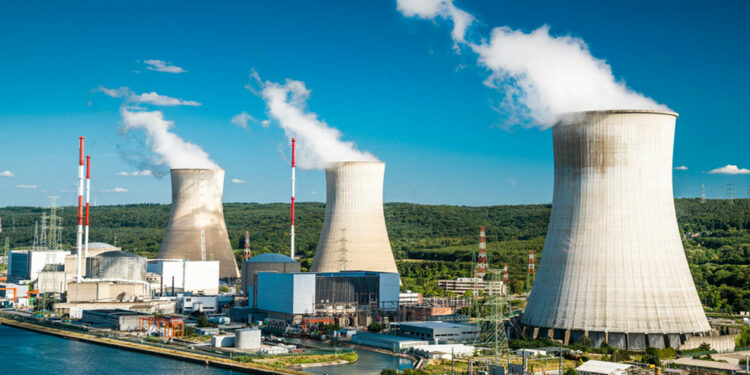Africa’s Growing Influence in Russia’s Nuclear Ambitions
As countries around the world push to forge strategic partnerships to advance their nuclear power goals, Africa’s critical role is expanding. Several African governments have signed nuclear energy deals with Russia, which aims to expand its nuclear ambitions across the continent through state-backed finance and technology that could reshape energy access and geopolitics.
Bonface Orucho, bird story agency
Russia is doubling down on Africa’s nuclear energy potential, channelling billions into long-term projects and courting governments with finance and technology. The pace of agreements and deliveries in 2025 underscores how fast Moscow is moving to secure its place in the continent’s power mix. In Ghana, Rosatom has opened talks on deploying floating reactors, a faster and less capital-intensive option than large-scale plants.
“Adopting floating nuclear technology will provide a reliable, sustainable power supply in the short to medium term,” said Robert Sogbadji, Deputy Director for Nuclear & Alternative Energy at Ghana’s Ministry of Energy and Green Transition in an interview with GhanaWeb.
The Ghanaian agreement follows Ethiopia’s September deal with Rosatom worth US$30 billion to build two 1,200MW nuclear units, a milestone that shifts its nuclear plans from preliminary memoranda to potential execution. The project is expected to deliver stable baseload power for Ethiopia, a country of more than 120 million people where electricity demand is expanding by roughly 20% each year.
According to the World Nuclear Performance Report 2025, four VVER-1200 units are under construction at El Dabaa, with construction of units 1–4 starting between July 2022 and January 2024. Egypt aims for nuclear power to generate roughly 9% of its electricity by 2030, a target that would be met if the first two units come online as planned.
<script src=”https://bird.africanofilter.org/hits/counter.js” id=”bird-counter” data-counter=”https://bird.africanofilter.org/hits/story/?id=2458&slug=russia-powers-up-nuclear-partnerships-in-africa” type=”text/javascript” async=”async”></script>
Last week, Russia dispatched reactor pressure vessels from St. Petersburg, a milestone that underlines Moscow’s capacity to supply advanced nuclear hardware on schedule while reinforcing its credibility as a long-term partner.
“These deals are not just about electricity; they are about positioning. By offering nuclear technology, training, and finance, Moscow is deepening political as well as economic ties,” said Dr Amina K. Njoroge, Senior Fellow at the African School of Governance.
Russia has signed nuclear cooperation deals with at least 20 African countries since 2024, according to UK news platform The Independent. Burkina Faso, for instance, finalised an agreement last year for Rosatom to build a nuclear plant, while Guinea signed a deal to develop floating reactors. The Republic of Congo followed with a pact covering both nuclear energy and hydroelectric power, and Namibia has also opened cooperation talks with Moscow as it eyes long-term energy diversification.
Niger, Africa’s second-largest uranium producer, is pushing ahead with its most ambitious deal yet: a Rosatom-backed twin 1,000 MW plant. With only 20% electrification in 2022, the project could convert Niger’s uranium into an energy sovereignty tool.
“Africa’s nuclear story has largely been theoretical until now. If Niger and others move forward, it will be the first time the continent tests nuclear as a viable complement to renewables,” Njoroge noted.
The financing model is equally strategic. President Vladimir Putin confirmed that the BRICS New Development Bank was prepared to fund nuclear projects across member states. This widens the pool of capital available and ties Africa’s nuclear future more closely to the BRICS bloc’s strategic ambitions.
“Moscow’s ability to marry long-term repayment models with strategic diplomacy makes nuclear attractive to governments struggling with upfront costs,” Njoroge added.
South Africa remains central to the conversation. The Koeberg nuclear station, commissioned in the 1980s, remains Africa’s only commercial nuclear power plant with a combined capacity of 1,854 MWe. According to the World Nuclear Performance Report 2025, Koeberg’s refurbishment, which included the replacement of steam generators, began in 2022 and concluded with the return to service of unit 2 in January 2025, extending the plant’s operating lifetime by about 20 years. Rwanda, Kenya, and Zambia are also working with Rosatom on research centres and feasibility studies, laying the groundwork for future energy projects.
“The nuclear trend suggests Africa could soon become the proving ground for Russia’s model of state-backed infrastructure investment,” Njoroge said.
Global demand strengthens the case. Nuclear output hit a record 2,667 TWh in 2024, according to the World Nuclear Performance Report 2025, with capacity rising to 398 GWe. Growing demand from data centres and AI reinforces the urgency for stable baseload power.
Together, these partnerships position Russia as one of Africa’s go-to nuclear partners, from full-scale plants in Egypt and Ethiopia to Niger’s reactors and research hubs in Rwanda and Zambia. For African governments, the draw lies in bundled packages of technology, training, fuel supply, and flexible repayment horizons.
“The impact of this trend could be transformative. Nuclear energy has the potential to deliver baseload stability in a way alternatives cannot always guarantee, and if successfully piloted in places like Niger, it could reframe the continent’s energy planning priorities,” Njoroge concluded.
bird story agency








